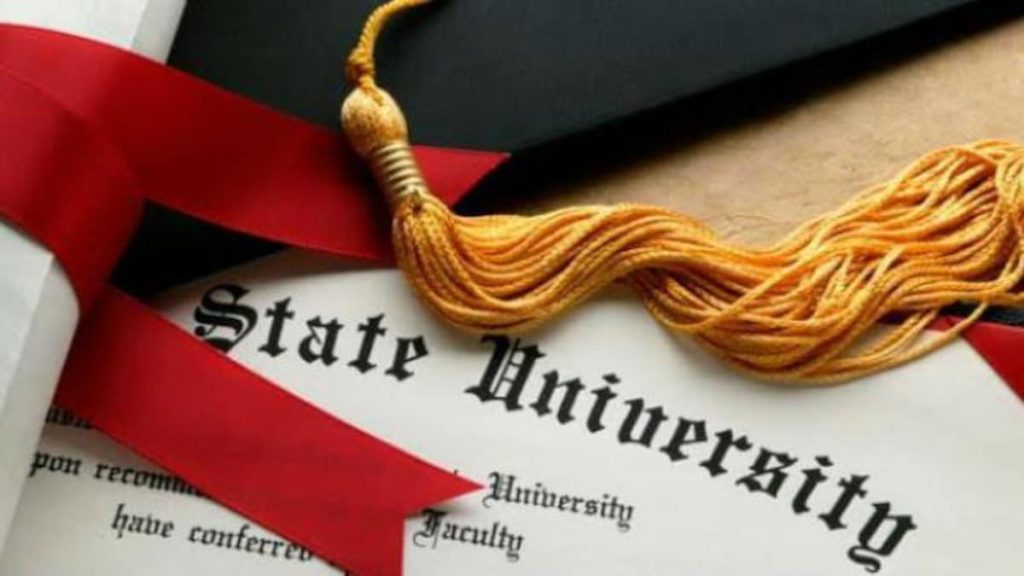Fake degrees are a serious issue that can have negative consequences for the society and the economy. They can cause an increase in resources for those who are seeking status and may hinder the transfer of expertise from one employer to another. They can also adversely impact legitimate educational institutions, and increase transaction costs for businesses.
Job market
Fake degrees have many negative consequences for the economy and social system. It can, for example result in an inefficient work environment and a higher percentage of staff turnover. Additionally, it can harm a company’s image and lead to financial loss. This is a problem for legitimate universities that lose revenue from tuition fees and must pay for the enforcement in intellectual property. Additionally, businesses that hire fake graduates may face legal liability as well as the cost of training employees who have low qualifications.
Credentialism or the overreliance on certificates to demonstrate job competency is one of the major factors contributing to the rise in demand for fake certificates. Employees who feel that they are being prevented from working by their employers will often buy fake degrees to compete for high-paying positions or promotions. This practice is particularly harmful for minorities, who are the most impacted by economic hardship.
Most reputable businesses have procedures to verify the credentials and educational qualifications of applicants. However, these processes are not foolproof. In fact, a study revealed that 32% of the companies that were surveyed admitted to accepting fake diplomas. This is a serious problem because it undermines real graduates’ dedication and their knowledge. Long-term it could affect the overall efficiency and quality of the work. It can also cause reputational and legal damages that require years to fix.

The impact of employers
There are many reasons why people fake qualifications, from the simple (to impress a friend or a romantic interest) to the dangerous (to defraud patients or clients). No matter the motive, it’s crucial for employers to be aware that fake credentials pose serious issues. False credentials can harm the reputation of a company, result in financial losses, and also threaten the safety of customers and employees.
The rise of diploma mills – unaccredited institutions that grant degrees with any academic requirements an integral part in the issue. These institutions allow inexperienced candidates to go through the hiring process and not be detected. These organizations also deny honest candidates legitimate opportunities to further their education and get a job.
Employers who hire employees with forged credentials can face legal consequences, including legal proceedings and financial penalties. A negative reputation, a lack of trust from customers as well as a drop in employee morale can all cause problems. In some instances, these firms could lose their license to conduct business.
Fake credentials are a problem that affects the entire world. According to a report by the National Student Clearinghouse, fraudulent diplomas have become a billion-dollar business. Diploma mills exist in some countries that sell certificates for certain professions. These diplomas can be purchased from online stores and can be verified by reputable third-party verification companies. This problem is particularly serious in industries with high risks, where dishonest workers can expose customers and patients to risk.
Consequences
Fake degrees could have grave negative consequences for businesses, individuals and institutions. The validity of genuine academic qualifications is undermined and the integrity of education systems is compromised. It also can damage the reputation of businesses and result in financial or legal liabilities. This can put lives at risk, especially if the employees are employed in high-risk fields such as healthcare or engineering.
People purchase fake credentials for various reasons. Many do lack the financial resources to cover the costs of university, while others want to compete for well-paying jobs or promotions. Some employers may be willing to take on candidates with fake credentials, but this is a big mistake. This is a crime since the majority of employers and universities see it as a form of fraud to say that you are a graduate but not having completed any course work.
To combat the issue of fake degrees, educational institutions must implement robust verification processes. They should also work with law enforcement authorities to find and prosecute criminals. Furthermore, they should develop strategies to educate employers and students on the dangers of fake diplomas. This could be accomplished through social media as well as other methods of communication. They can also promote digitized certificates, which are less likely to be fake and offer access to third-party verification services and learn this here now https://lambang247.pro/.
Fraud in the educational credential system
In the digital age, counterfeiting diplomas and other academic certificates has become a billion dollar industry around the globe. In the United States alone, it’s estimated that there are more than 2 million fake degrees. This illegal industry is fuelled by technological advances that have enabled companies to produce fake transcripts, certificates letters of recommendation as well as other documents. The illegal industry is fuelled by e-commerce social media, as well as other advances in technology which have made it simpler to sell credentials and purchase them.
The reputation of businesses can be damaged along with lost business opportunities. They may also lose customers who appreciate trustworthiness and integrity. Additionally, employees who work alongside unqualified colleagues can become demotivated and disengaged in their workplace. This can result in poor productivity as well as higher costs for training.
The emergence of fake degrees isn’t new, the recent concerns over their burgeoning increase has raised concern among academic and business decision-makers. This article presents an economic view on the subject, which differs substantially from the educational and legal views that frequently advocate restrictive policies. The analysis provides an approach that permits us to study how holders of fake degrees can enjoy the rights attached to legitimate degrees. The framework suggests that the proper level of protection depends on the degree’s status in society and the amount of return it provides.